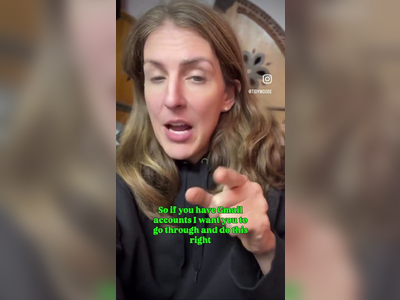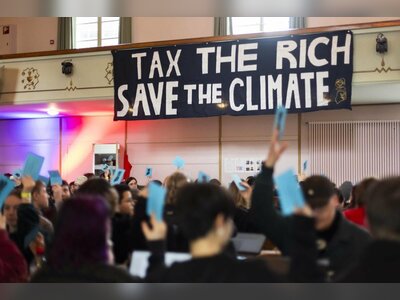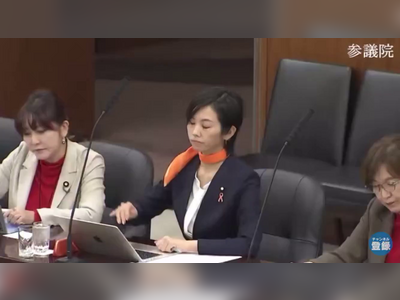Seoul in Crisis: Yoon Suk Yeol's Misjudgment on Martial Law Triggers Political Upheaval
An unprecedented action by South Korea's president prompts concerns about the fragility of democracy during a time of political and security tensions.
South Korea, once hailed as a beacon of democracy in Asia, finds its political landscape mired in one of its most significant crises. President Yoon Suk Yeol's brief martial law declaration, citing threats from North Korea and so-called "anti-state elements," has prompted an impeachment motion that jeopardizes his presidency just two years into his term.
Announced late on December 3, the controversial move involved mobilizing the military, restricting civil liberties, and accusing the opposition-led parliament of eroding the country’s democratic integrity. By morning, the National Assembly had gathered for an emergency session to overturn the decree, compelling Yoon to retract under intense domestic and international pressure.
Cracks in Leadership
This incident reveals vulnerabilities in both President Yoon’s leadership and South Korea’s overall governance framework. Yoon, a former prosecutor known for clashing with opposition lawmakers during his tenure, defended martial law as a precaution against a worsening security landscape. However, critics claim the decision was more about consolidating power amid declining approval ratings—now at a grim nineteen percent—than responding to North Korean provocations.
The Democratic Party, with a strong parliamentary majority, has rapidly moved to impeach Yoon, labeling the martial law order an "outrageous breach of constitutional principles." If the impeachment succeeds, Yoon would follow Park Geun-hye—the scandal-tainted leader he once prosecuted—as the second South Korean president to be impeached since the country's democratic transition in the 1980s.
Democracy Under Scrutiny
While South Korea has endured political turmoil before, this situation is particularly dangerous. The last martial law declaration occurred more than forty years ago, under the shadow of military rule. Yoon's maneuver has evoked comparisons to that dark era, sparking fears of democratic erosion. Public reaction has been decisive: massive protests, union-led strikes, and candlelight vigils reminiscent of the demonstrations that led to Park's ouster in 2017.
The international reaction has been equally significant. The United States, South Korea’s closest ally, voiced “deep concern” over the declaration and postponed high-level defense talks scheduled for the week. Meanwhile, China and Japan released cautious statements, wary of the geopolitical implications of instability in Seoul.
A Warning Narrative
What lessons can be drawn from this episode? It highlights the fragility of democracies that depend heavily on charismatic but divisive leaders. Yoon’s rhetoric—citing external threats while demonizing domestic opposition—may have energized his base, but he alienated moderates and intensified political divisions.
Furthermore, the crisis underscores that even robust democratic systems are susceptible to the abuse of emergency powers. Yoon’s misjudgment, exacerbated by a lack of substantial evidence for his actions, has imperiled his political future and cast a long shadow over South Korea’s democratic institutions.
Moving Forward
As the Constitutional Court prepares to assess the impeachment motion, the stakes are immense. South Korea's reputation as a democratic exemplar in the region is at risk. Whether Yoon’s actions are viewed as an anomaly or a signal of deeper systemic issues will hinge on the response of the country’s institutions in the upcoming weeks.
This episode should serve as a warning—not only for South Korea but for democracies worldwide facing the dual challenges of political polarization and security threats. As Alexis de Tocqueville once noted, “The health of a democratic society may be measured by the quality of functions performed by private citizens.” In Seoul, as citizens rally to protect their freedoms, that measurement is being challenged as never before.
Announced late on December 3, the controversial move involved mobilizing the military, restricting civil liberties, and accusing the opposition-led parliament of eroding the country’s democratic integrity. By morning, the National Assembly had gathered for an emergency session to overturn the decree, compelling Yoon to retract under intense domestic and international pressure.
Cracks in Leadership
This incident reveals vulnerabilities in both President Yoon’s leadership and South Korea’s overall governance framework. Yoon, a former prosecutor known for clashing with opposition lawmakers during his tenure, defended martial law as a precaution against a worsening security landscape. However, critics claim the decision was more about consolidating power amid declining approval ratings—now at a grim nineteen percent—than responding to North Korean provocations.
The Democratic Party, with a strong parliamentary majority, has rapidly moved to impeach Yoon, labeling the martial law order an "outrageous breach of constitutional principles." If the impeachment succeeds, Yoon would follow Park Geun-hye—the scandal-tainted leader he once prosecuted—as the second South Korean president to be impeached since the country's democratic transition in the 1980s.
Democracy Under Scrutiny
While South Korea has endured political turmoil before, this situation is particularly dangerous. The last martial law declaration occurred more than forty years ago, under the shadow of military rule. Yoon's maneuver has evoked comparisons to that dark era, sparking fears of democratic erosion. Public reaction has been decisive: massive protests, union-led strikes, and candlelight vigils reminiscent of the demonstrations that led to Park's ouster in 2017.
The international reaction has been equally significant. The United States, South Korea’s closest ally, voiced “deep concern” over the declaration and postponed high-level defense talks scheduled for the week. Meanwhile, China and Japan released cautious statements, wary of the geopolitical implications of instability in Seoul.
A Warning Narrative
What lessons can be drawn from this episode? It highlights the fragility of democracies that depend heavily on charismatic but divisive leaders. Yoon’s rhetoric—citing external threats while demonizing domestic opposition—may have energized his base, but he alienated moderates and intensified political divisions.
Furthermore, the crisis underscores that even robust democratic systems are susceptible to the abuse of emergency powers. Yoon’s misjudgment, exacerbated by a lack of substantial evidence for his actions, has imperiled his political future and cast a long shadow over South Korea’s democratic institutions.
Moving Forward
As the Constitutional Court prepares to assess the impeachment motion, the stakes are immense. South Korea's reputation as a democratic exemplar in the region is at risk. Whether Yoon’s actions are viewed as an anomaly or a signal of deeper systemic issues will hinge on the response of the country’s institutions in the upcoming weeks.
This episode should serve as a warning—not only for South Korea but for democracies worldwide facing the dual challenges of political polarization and security threats. As Alexis de Tocqueville once noted, “The health of a democratic society may be measured by the quality of functions performed by private citizens.” In Seoul, as citizens rally to protect their freedoms, that measurement is being challenged as never before.








